What Gauge Wire for Speakers (Table + Tips)
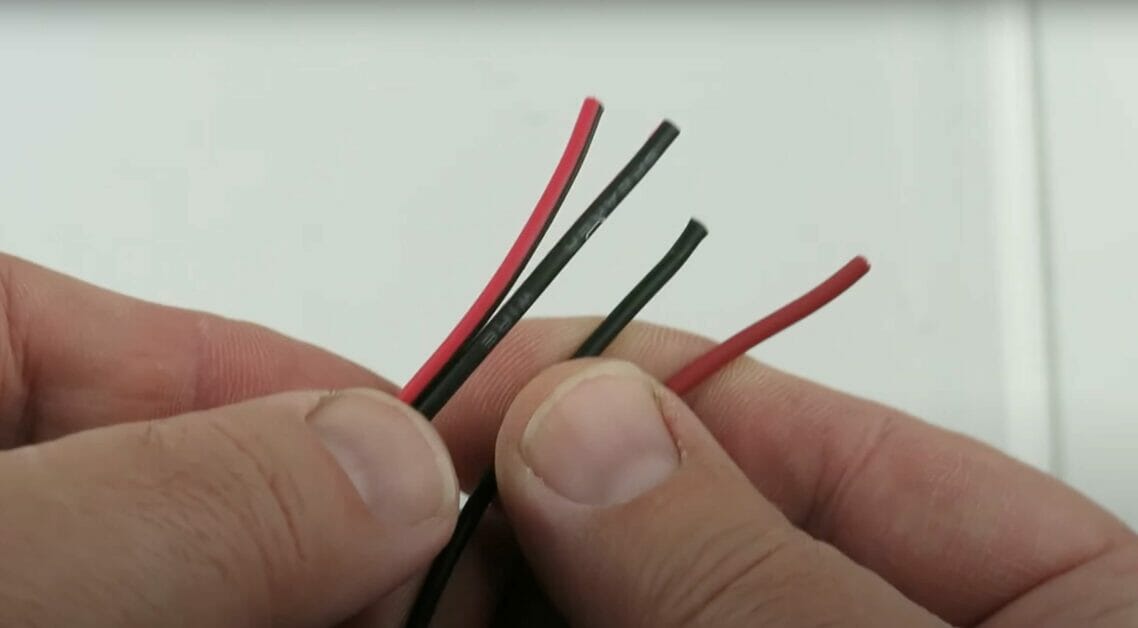
I know speakers can be confusing, especially with all the technical details like wire gauge, but don’t worry – I’ve got you covered. Speaker wire plays a crucial role in audio systems, and choosing the right gauge can significantly impact sound quality.
Now, gauges vary, but the 16-gauge wire will cover most. Going for something like 12 or 14-gauge wire might be a good move if you’re dealing with longer runs or high-powered systems. Choosing the right one depends on your speaker’s power and distance from the receiver or amplifier.
Don’t worry; we’ll dive into all that in this article, and by the end, you’ll know exactly which gauge wire to grab for your speakers.
Overview of Popular Speaker Wire Gauges
| Speaker Wire Gauge | Thickness | Use Case | Power and Distance Suitability | Advantages | Drawbacks |
|---|---|---|---|---|---|
| 12-Gauge | Thickest | High-power audio systems, long wire runs | High power handling, low resistance | Best for high volumes and long distances | It might be overkill for small, low-powered systems; harder to work with |
| 14-Gauge | Moderately Thick | Long wire runs, decent power levels | Balanced power and resistance handling | Works great for most home theater setups | It might not be best for super high-powered systems |
| 16-Gauge | Moderately Thin | Everyday low-power audio needs short wire runs | Easy to bend and install, moderate power output | Perfect for tight spaces and corners | Not the best for high-power systems; possible sound quality loss and heat generation |
| 18-Gauge | Thinnest | Low-power setups, small home or car speakers (not subwoofers) | Suitable for up to 50 watts for 4-ohm speakers and 100 watts for 8-ohm speakers (distances up to 50 feet) | Affordable and reliable for small systems and tight spaces | Not ideal for high-quality sound and high-powered systems |
Understanding Speaker Wire Gauge

American Wire Gauge (AWG)
One of the most important things you need to know about speaker wire is the gauge – it’s all about the American Wire Gauge (AWG) system.
This system measures the thickness of the wire, with lower numbers meaning a thicker wire and higher numbers a thinner one.
Now, you might be wondering why this matters. The wire gauge can impact your speakers’ sound quality and performance.
Here’s a quick breakdown:
- Thicker wire (lower AWG number) can handle more power and lower resistance.
- Thinner wire (higher AWG number) is easier to work with but has higher resistance and can limit your sound quality at longer distances.
How Gauge Affects Resistance
Now, why should we care about the gauge? Well, it’s all about resistance. You see, the higher the gauge (meaning thinner wires), the more resistance in the wire.
And as an audiophile, you want to minimize speaker cable resistance. Here’s the deal:
- Higher Gauge (Thinner Wires): More resistance, potentially affecting sound quality.
- Lower Gauge (Thicker Wires): Less resistance, allowing better performance.
But don’t worry; you don’t always need the thickest wire on the market. For low-power home or car speakers (not subwoofers), an 18-gauge wire is perfectly fine.
It’s good for about 50 watts for 4 ohm and 100 watts for 8-ohm loudspeakers, up to 50 feet (15 m) or 100 feet (30 m).
The takeaway is simple: choose the right wire gauge for your setup. It’ll make your audio system sound amazing, and that’s what we all want.
Recommended Wire Gauge Based on Speaker Power and Distance
| Speaker Power (Watts) | Distance (feet) | Recommended Wire Gauge |
|---|---|---|
| Up to 50 | Up to 50 | 18-Gauge |
| Up to 100 | Up to 50 | 16-Gauge |
| 100+ | Up to 50 | 14-Gauge |
| Up to 50 | 50+ | 16-Gauge |
| Up to 100 | 50+ | 14-Gauge |
| 100+ | 50+ | 12-Gauge |
Popular Speaker Wire Gauges
12-Gauge Speaker Wires
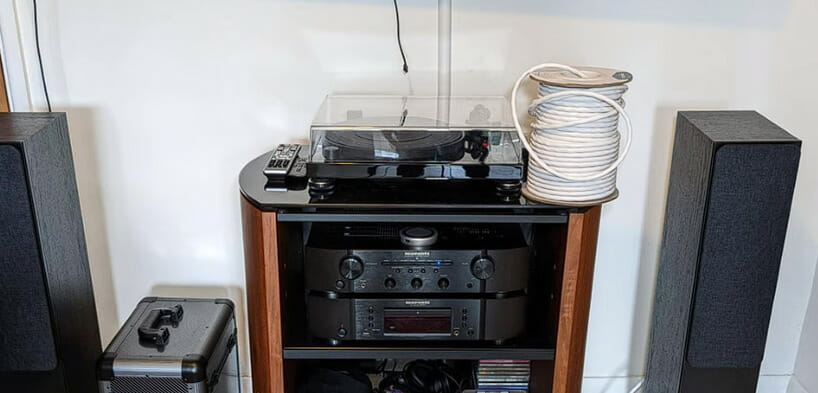
12-gauge speaker wires are the thickest ones among the popular speaker wire gauges. These bad boys are perfect for high-power audio systems or those super-long wire runs.
They offer low resistance, so they’re your go-to wire to crank up the volume without losing quality. You know, when you’re spicing up the party or showing off your killer home theater system.
But let me warn you of a potential pitfall: 12-gauge wires might be overkill for some folks.
If you have a smaller room or use lower-powered speakers, the difference in sound quality might not be obvious. Plus, these wires can be a little harder to work with because of their thickness. So, choose wisely!
14-Gauge Speaker Wires
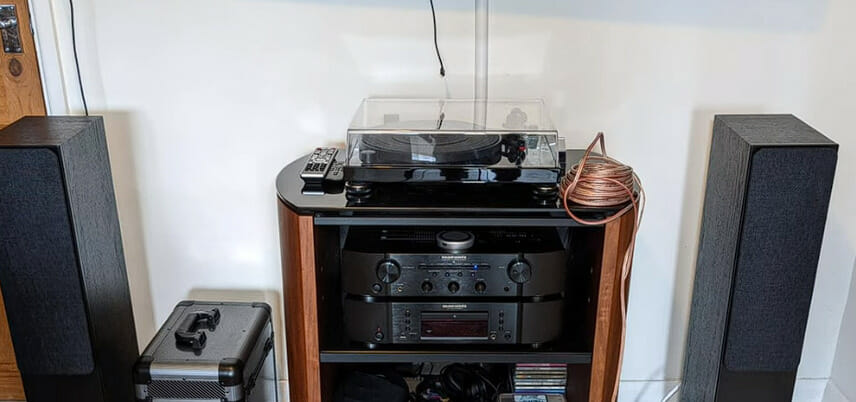
Moving on, we’ve got 14-gauge speaker wires. These are slightly thinner than the 12-gauge siblings and, in my opinion, a great middle-ground choice.
It’s your jack-of-all-trades speaker wire, as it can handle long wire runs and decent power levels well.
I’ve found that these wires work great for most home theater setups with good-quality speakers and a well-versed amplifier.
The only drawback? If you have a super high-powered audio system, you might not get the best results with 14-gauge wires. However, for many of us, the difference might not be noticeable.
16-Gauge Speaker Wires
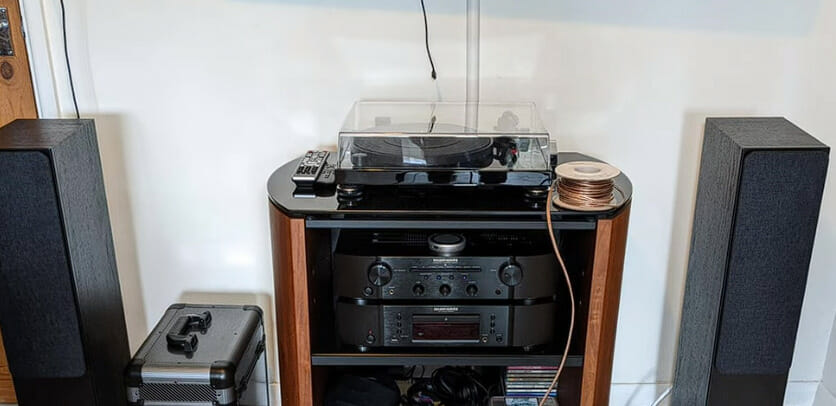
Next, we’ve got 16-gauge speaker wires. These little fellas are the second to the thinnest wires among the popular gauges and are awesome for your every day, low-power audio needs.
They’re easy to bend, making them a breeze to install in tight spaces or around tricky corners.
These wires also work well for short wire runs and home theater systems with moderate power output.
But remember, if you’re all about that bass and want to pump up some big wattage, the 16 gauge might not be the best choice.
You might experience some sound quality loss, and the wire might get hot with high-power systems.
18-Gauge Speaker Wires
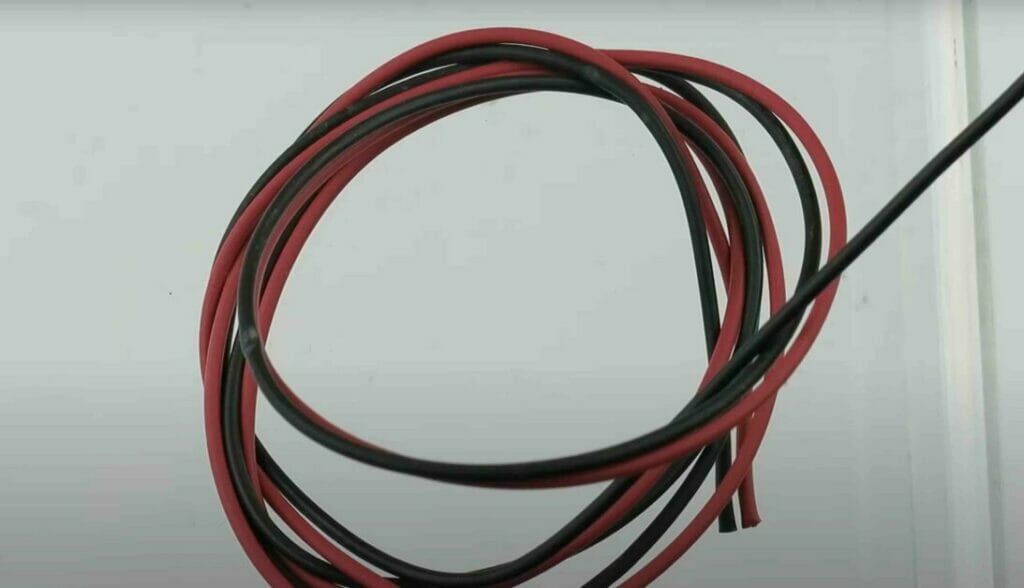
Lastly, let’s talk about the 18-gauge speaker wires. These thin wires are best suited for low-power setups, like smaller home or car speakers (not subwoofers), and are great for short distances.
An 18-gauge wire can handle up to 50 watts for 4-ohm speakers and up to 100 watts for 8-ohm speakers at distances up to 50 feet.
While they may not offer the best sound quality compared to their thicker siblings, they’re still a reliable and affordable option for smaller systems and tight spaces where size matters.
So, there you have it, folks! 12-gauge, 14-gauge, 16-gauge, or 18-gauge are your options for popular speaker wire gauges.
Choose the one that caters to your audio setup and room size, and you’ll be jamming like a pro in no time!
Factors to Consider When Choosing Speaker Wire
Below are some factors to consider to help you even further to choosing gauge wire for your speakers:
Length of Cable
When picking out speaker wire, one of the critical factors to consider is the length of cable you’ll need.
The longer the wire, the thicker (higher gauge) it should be. It’s important to remember that the longer you run your cable, the more resistance your audio signal will encounter along the way.
I always err on caution with a slightly thicker gauge wire for those lengthy runs. It’s better to be safe than sorry, right?
Power of Your Sound System
Another essential factor to think about is the power of your sound system. Choosing a wire gauge that can handle the amount of electric current your sound system will draw is important.
For low-power systems, like your standard car or home speakers, an 18-gauge wire should be just fine. As mentioned, it can handle about 50 watts for 4-ohm speakers and 100 watts for 8-ohm speakers.
But if you’ve got a high-end sound system or you’re dealing with subwoofers, you’ll want a thicker wire to handle that extra oomph!
Speaker Impedance
Finally, you’ll need to consider the speaker impedance in your setup. Impedance measures your speakers’ resistance to the flow of electric current, measured in ohms.
You must match the wire’s gauge to your speaker’s impedance to minimize the overall load on your sound system.
Here’s a quick breakdown:
- 4-ohm speakers: Go for at least an 18 gauge wire but consider a 16 gauge if you want that extra peace of mind.
- 8-ohm speakers: An 18 gauge wire should do the trick, but if you’re working with longer cable runs or a high-power system, don’t hesitate to bump it up a notch.
So, there you have it! Remember to consider the length of the cable, the power of your sound system, and speaker impedance when choosing the perfect speaker wire. Enjoy your tunes!
References
Organizations:
- Audio Engineering Society (AES). https://aes2.org/
Websites:
- Crutchfield. https://www.crutchfield.com/
- Audioholics. https://www.audioholics.com/
Video References
UTILITARIAN TV
Electronic Goldmine
